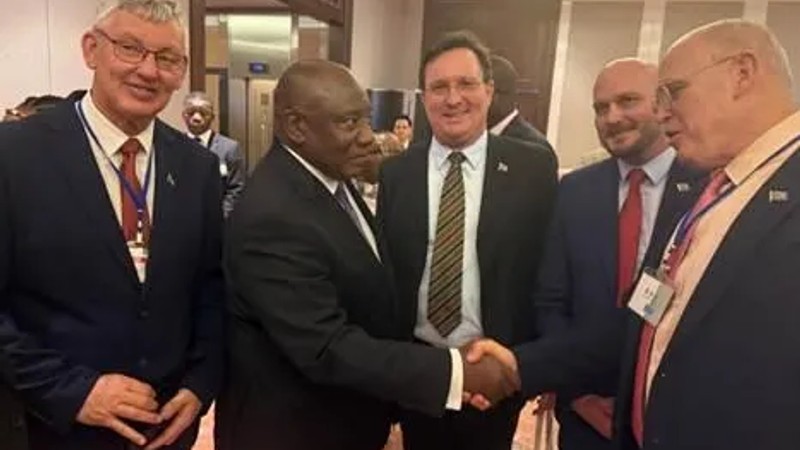Beefmaster Group, one of South Africa’s leading beef producers, has said that unlocking agricultural exports to Asia will be key to boosting the country’s agribusiness growth and creating new opportunities for farmers.
Louw van Reenen, executive chairman of Beefmaster Group, said on Thursday that the company was encouraged by the positive outcomes of recent trade discussions held during President Cyril Ramaphosa’s State Visit to Vietnam and Malaysia, where the focus was on expanding South Africa’s market access across Southeast Asia.
“Our industry is working hard to open these markets, and we’re making good progress. Together, they represent around 700 million people, with rising demand for quality protein products, and many more opportunities likely to follow once access is established,” he said.
“Even securing one of these markets would be a major boost for South Africa’s primary producers, the industry, and the broader economy.”
Beefmaster Group was part of the South African business delegation accompanying President Ramaphosa on his official visit to deepen economic and trade relations in key Asian markets.
Van Reenen noted that the company has been engaging with Asian counterparts for the past four years to open new markets for its beef products, focusing on Indonesia, Singapore, Vietnam, and Malaysia.
“Beefmaster also applied to export products to Singapore. Beefmaster Group aims to be a pioneer in exporting to these high-potential countries. Agriculture has been identified as a key pillar of opportunity for driving South Africa’s economic growth,” Van Reenen said.
The company previously received approval to export to Malaysia, but those plans were interrupted by the COVID-19 pandemic and outbreaks of Foot-and-Mouth Disease (FMD).
Ramaphosa, in his keynote address in Hanoi, Vietnam, identified agriculture as a key pillar of opportunity for driving South Africa’s economic growth and highlighted the country’s world-class livestock industry and potential to strengthen food security through global partnerships.
During the visit, Minister of Agriculture John Steenhuisen met with Nguyen Hoang Hiep, Vietnam’s Deputy Minister of Agriculture and Environment, to discuss opportunities for South Africa to supply Vietnam’s growing demand for high-quality meat products — including beef, pork, lamb, and game.
Van Reenen said the company is hopeful that progress made during the Southeast Asia mission will lead to expanded market access ahead of the upcoming G20 Summit in Johannesburg in November.
Wandile Sihlobo, chief economist at the Agricultural Business Chamber of South Africa (Agbiz), said the engagements in Vietnam were crucial for positioning South Africa in new global markets.
“South Africa is on a path of export diversification, and positioning the country in the minds of political leadership in various countries is crucial. What will need to follow these visits are technical engagements, particularly to widen exports of different sectors of our economy,” Sihlobo said.
“The Department of Trade, Industry and Competition, along with the Department of International Relations and Cooperation, should lead such engagements.”
Sihlobo noted that Vietnam is a significant agricultural market, importing over $30 billion (R520 billion) worth of agricultural products annually. However, South Africa currently accounts for only 0.3% of those imports — about $89 million (R1.5bn) in 2024.
Vietnam’s top agricultural suppliers include China, Brazil, the United States, Argentina, Cambodia, Australia, India, and Indonesia, which together make up 70% of its agricultural imports. The country primarily imports maize, nuts, cotton, soybean oilcake, wheat, rice, soybeans, beef, and palm oil.
South Africa already exports maize, apples and pears, table grapes, nuts, and cotton to Vietnam. Sihlobo said that expanding this trade basket to include more fruits, wines, red meat, and grains could yield significant benefits.
“State visits, such as the one in Vietnam, coupled with the recent trip to Indonesia and trip to Malaysia, must always place a strong focus on trade in the agricultural sector,” Sihlobo said.
“For other sectors of the economy, key areas include skills exchange and investment. But in agriculture, the primary focus is expanding export markets.”
BUSINESS REPORT
